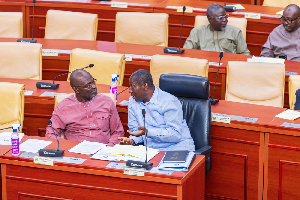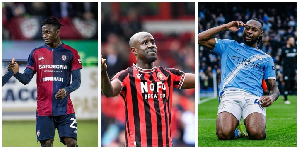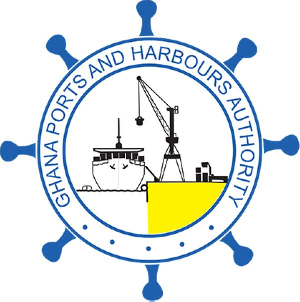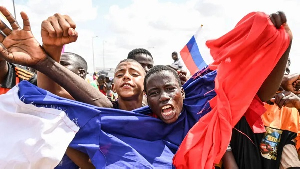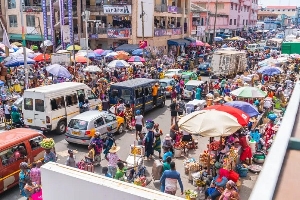In the past two weeks, the National Democratic Congress (NDC) has raised the political temperature in the country to an all-time high. And they have done so, on two issues: alleged bias against them by security forces and Ewe ethnicity.
Social media is awash with videos of Sam George, the Member of Parliament for Ningo-Prampram and the Communications Director of the NDC, Sammy Gyamfi, threatening security agencies that if the NDC was to return to power, they would deal with them.
I don’t know what dealing with them means. But in the ordinary person’s language, “dealing’ with people means making life uncomfortable for them. On the back of the promise to deal with security agencies if they come to power, Sammy Gyamfi adds that they will “chase out anybody who attempts to behave like Prof. Mills and advocate “a father-for-all principle.”
So, right from the start, the NDC announces that their intention is to bifurcate our society into a “them” and “us” society. They intend to politicise the security services on the basis of partisanship. I find this ideology dangerous for our country.
I do not believe that the security people in our country are necessarily politically neutral. Indeed, nobody is. Even the members of the Electoral Commission vote in elections. But by the nature of their job, security persons cannot be seen to be openly aligned to political parties. I think that the Ghanaian people should shut the NDC out of power for a very long time. They are dangerous for our country.
But worse still is the dogged effort by the NDC to galvanise and mobilise Ewe votes through inciting ethnic hatred and playing up the sentiments of Ewe people. They seek to convince Ewe people that the NPP and for that matter, the President has an agenda for disenfranchise Ewe people.
Indeed, the Presidential Candidate of the NDC avers that the President has declared war on the people of the Volta Region by sending troops to protect Ghana’s borders. If this is not ethnic incitement, then I don’t know what is. After all, troops had been sent to all of Ghana’s borders. Why the NDC chose only to protest about the troops on the Aflao border is beyond imagination.
The only logical conclusion to draw is that the NDC sought to incite the Ewe people against the President and mobilise, energise and galvanise an entire ethnic group for the realisation of Mr. Mahama’s selfish political agenda. The NDC says that in 2016, apathy in its ‘world bank,” the Volta region caused it the election. So, this time they seek to whip up the sentiments of the people of the Volta Region in order to get them to vote in their numbers for the NDC.
To be clear, in Africa, and most parts of the world, political party mobilisation is often done around issues of ethnicity and religion. Indeed, Africans often feel a high sense of attachment to their ethnic and religious identities. Thus, most political parties in Africa have stronger support bases amongst ethnic or religious groupings.
So, that per se is not the problem. The problem is when a particular party seeks to elevate the allegiance of an ethnic group into a religion with dangerous cultic connotations. Ewes, like Akans are a very dispersed people.
They are in every nook and cranny of the country. No Ewe in any part of the country has complained of victimization or discrimination merely on the basis of their ethnicity. Indeed, in the heart of Kumasi is a sprawling community called, Anloga, which is an Ewe settlement.
Ewes have been Members of Parliament, representing constituencies of the Ashanti Region. I doubt that any Ashanti would ever be allowed to represent a constituency of the Volta Region in parliament. So, the NDC should be told to get off this dangerous strategy of ethnic incitement.
The United Party tradition, which is the antecedent of the NPP, was formed from an amalgam of parties that included the Togoland Congress. Indeed, the Volta Region was fiercely anti-Nkrumah. The reason the Volta Region is now loyal to the NDC is because of Jerry Rawlings. And now, Jerry Rawlings being attacked by the people who fed from his political exploits. It will better serve the needs of our country if the NDC finds alternate ways of holding the allegiance of the people of the Volta Region. Ethnic incitement is not the way to go. It is dangerous. And it is not good.
Opinions of Friday, 7 August 2020
Columnist: Abdul-Majeed Hunsu



